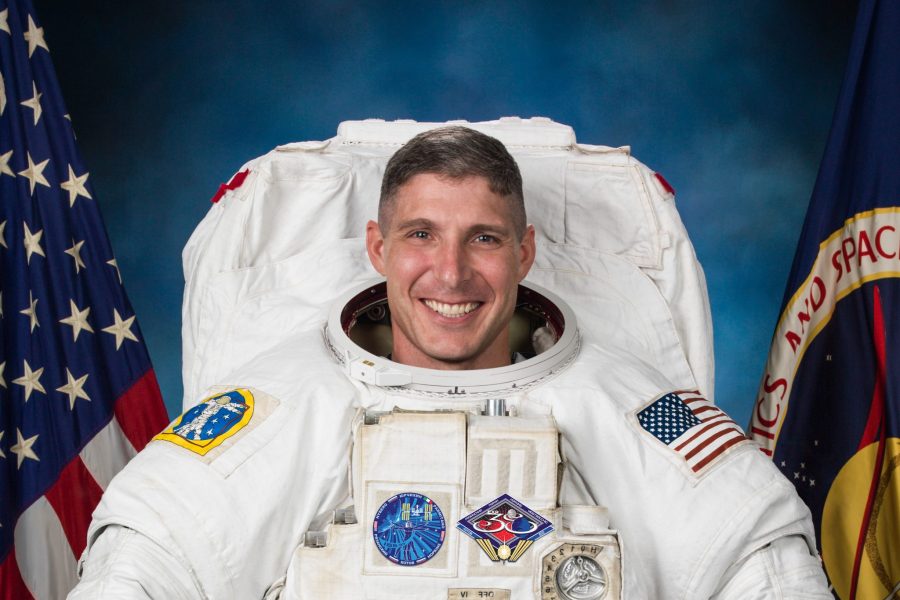The Space Force plans to swear in NASA Astronaut and Air Force Col. Michael S. Hopkins while he’s aboard the International Space Station as part of the upcoming Crew-1 Mission, a service official confirmed to Air Force Magazine on Oct. 29.
Hopkins is slated to command the upcoming mission, which his NASA bio notes is the “first post-certification mission of SpaceX’s Crew Dragon spacecraft” and its second crewed flight.
The mission is expected to launch on Nov. 14 at 7:49 p.m. EST.
“[Chief of Space Operations] Gen. [John W. “Jay”] Raymond is working with [NASA] Administrator [Jim] Bridenstine to leverage this unique venue for the ceremony as a way to spotlight the decades-long partnership between DOD and NASA,” the official said in a statement provided to Air Force Magazine.
News of the tentative ceremony was first reported by SpaceNews, though the ceremony date hasn’t been announced yet.
Hopkins commissioned into USAF in 1992, his NASA bio states.
He went on to work with “advanced space system technologies” at Kirtland Air Force Base, N.M., graduate from the U.S. Air Force Test Pilot School’s flight engineering course, and test C-17s and C-130s as a member of the 418th Flight Test Squadron at Edwards Air Force Base, Calif., it notes.
His other pre-NASA accomplishments include training at the Defense Language Institute, studying abroad in Italy, supporting the Air Force Rapid Capabilities Office as a project engineer and program manager, and serving as a special assistant to the Vice Chairman of the Joint Chiefs of Staff.
Hopkins, a member of NASA’s 20th astronaut class, completed his Astronaut Candidate Training in 2011, according to his bio.
The Crew-1 Mission will mark his second stint on the ISS.
“During his stay aboard the space station, Hopkins and [fellow NASA astronaut Rick] Mastracchio conducted a pair of U.S. spacewalks to change out a degraded pump module for a total of 12 hours and 58 minutes,” his bio states. “Hopkins, [and Russian cosmonauts Oleg] Kotov and [Sergey] Ryazanskiy returned to Earth on March 10, 2014, after 166 days in space. During the expedition, the crew completed 2,656 orbits of the Earth and traveled more than 70 million miles.”
